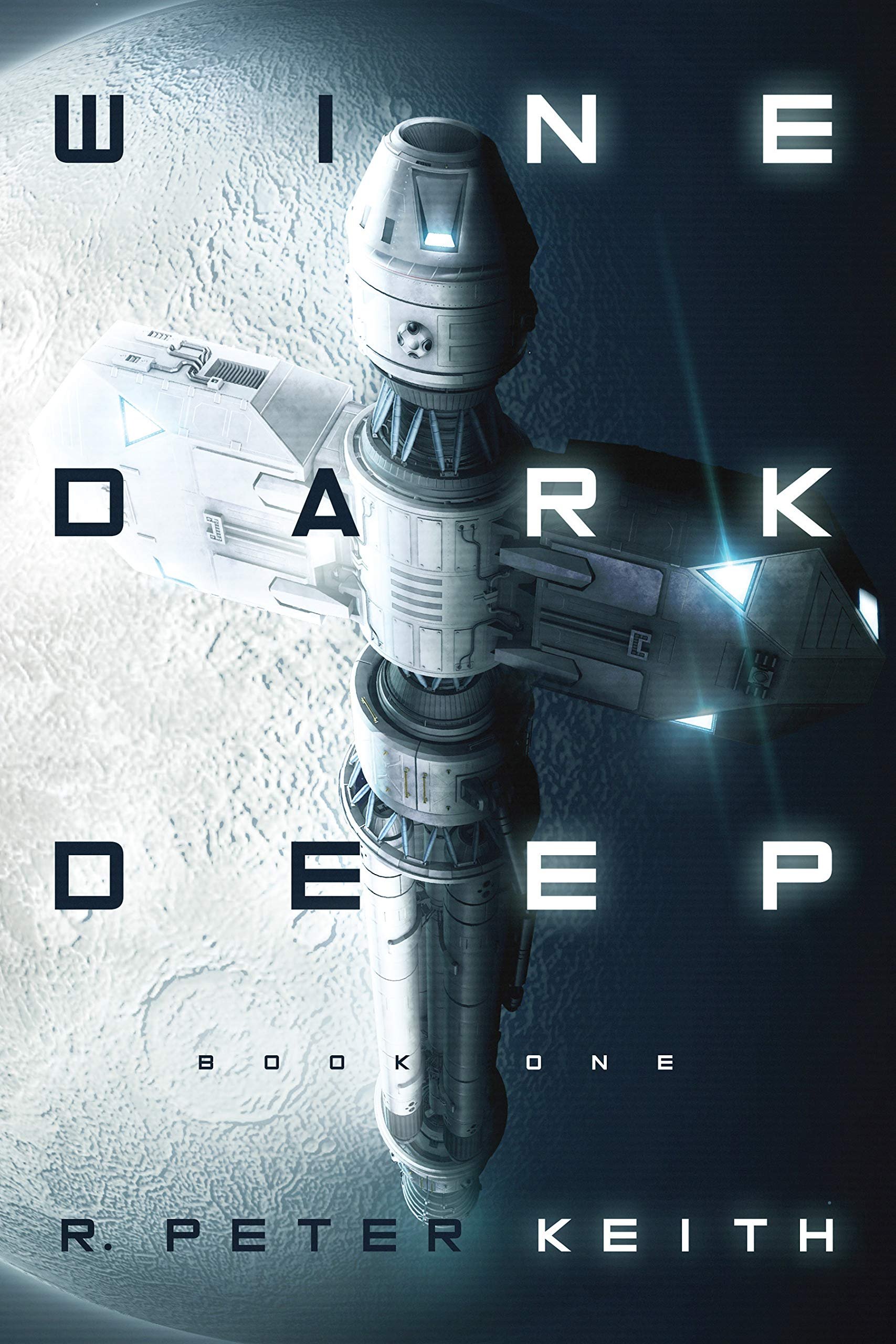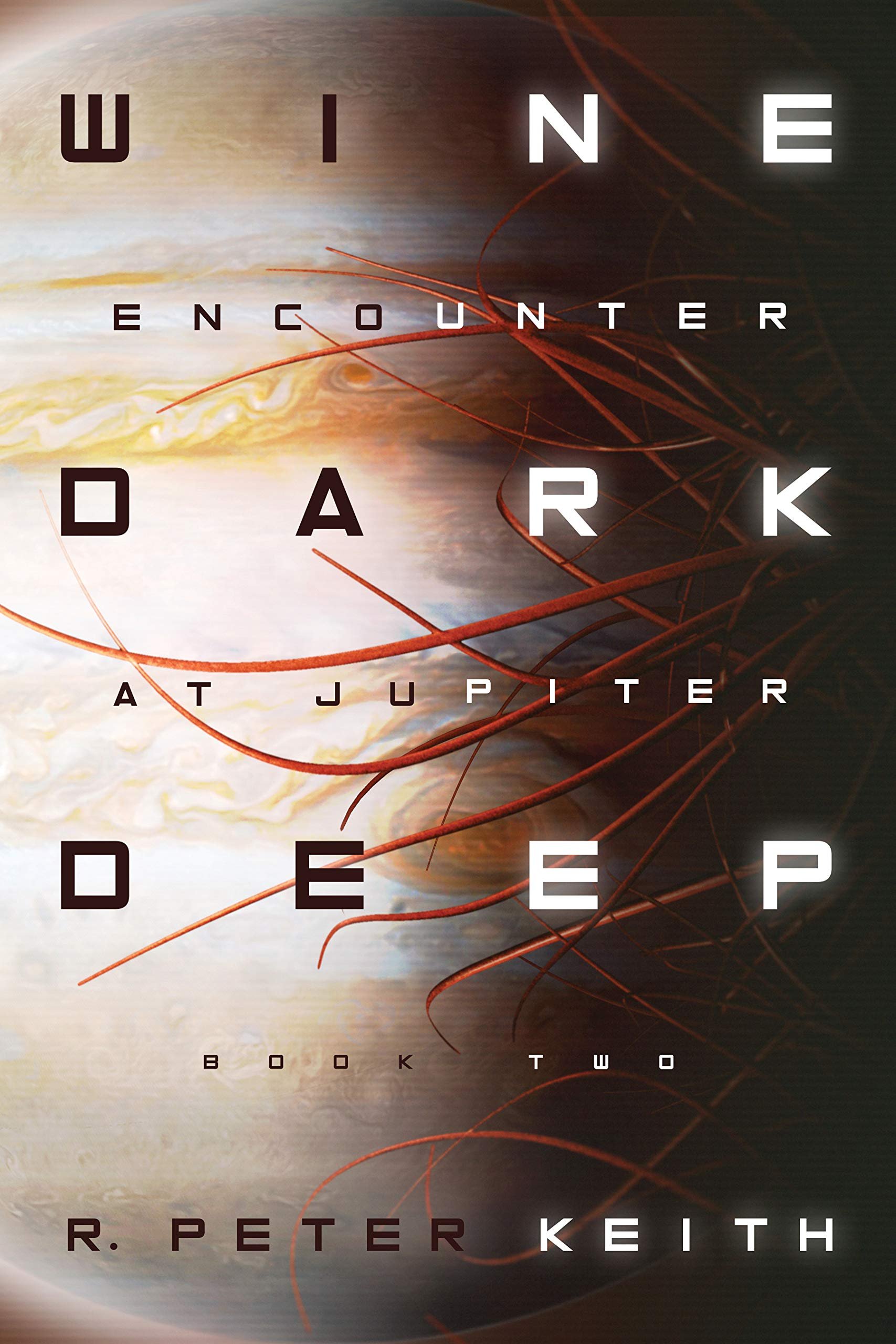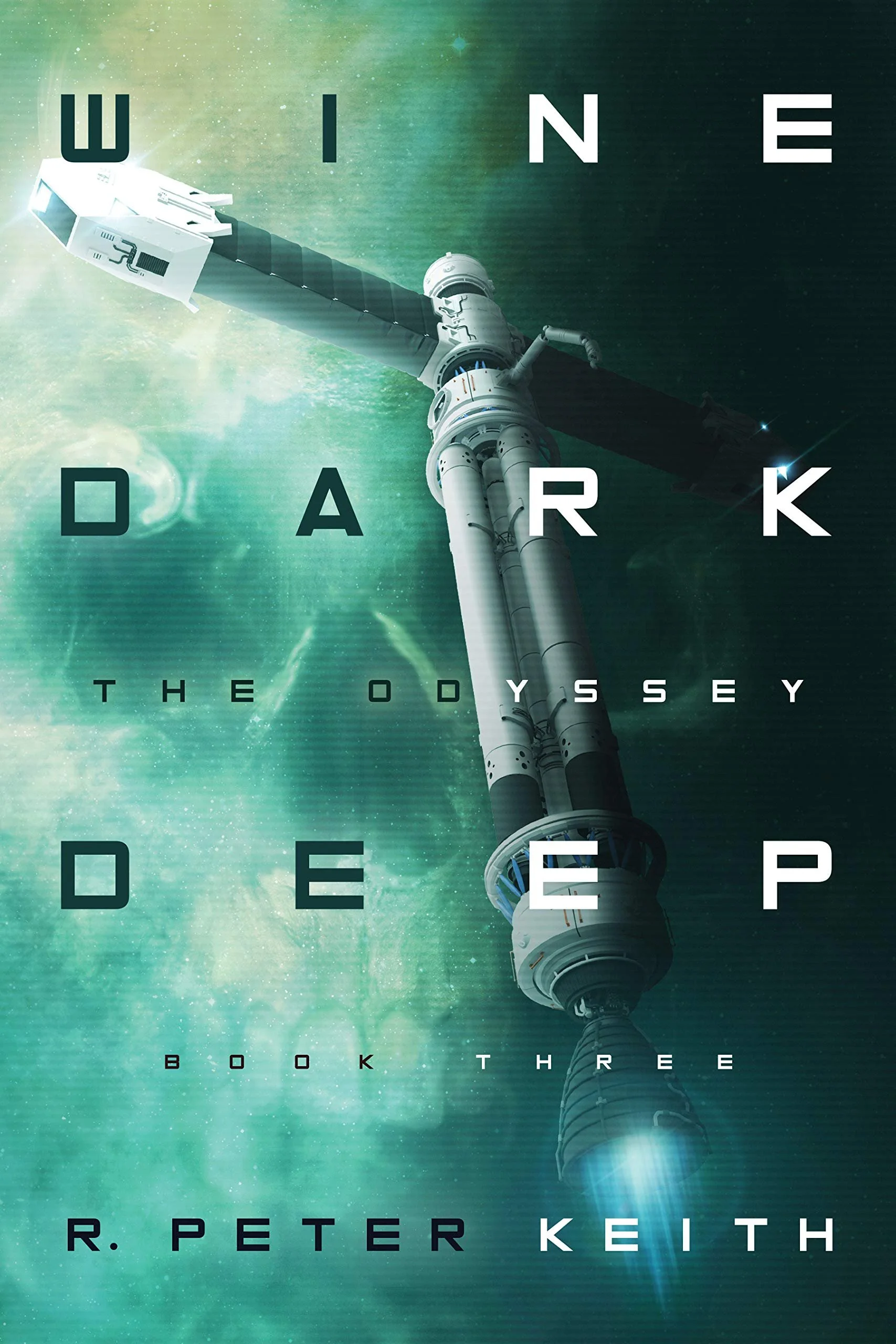The Wine Dark Deep Series (So Far) R. Peter Keith (2020)
Wine Dark Deep, (2020)
Encounter At Jupiter (2020)
The Odyssey (2020)
Book 1, The Wine Dark Deep, sees the appropriately-named deep space probe Ulysses arrive at a planned interstellar refueling stop to find…nothing. The uppity colonists on the asteroid Ceres are acting out their frustrations with Earth. Not refueling the probe is high on their list of ways to express their grievances. The captain, Calvin Scott, channels the Greek king for whom his ship is named and heads out to confront the wily Ceresians. Adventure ensues, leavened with careful attention to orbital mechanics and physics which vaults this into the first row of realism: the plot moves fast, but Ulysses still moves through the solar system at a (relative) plod. The bulk of the book deals with how Scott deals with the rebellious faction, and then the adventurers are headed off to Jupiter to do some science – politics left safely behind them.
Book 2, Encounter At Jupiter brings Mission Commander Scott and his crew into a bizarre but oddly compelling first contact situation. The mechanics of how Scott & Co. handle this were fascinating – I had trouble believing that Mission Control back on Earth was as passive about it as Keith suggests – but at the same time, this opens space (no pun intended) for a deeper discussion of how the crew, with their very different personalities, handle the stress inherent in the situation. The book ends with the Ulysses and crew taking the ride of their lives into the eye of a very unusual storm.
Book 3, The Odyssey, sees the author well and truly bust out his copy of Homer, as it becomes clear that the Ulysses and its crew are very, very far from home – and not getting back there either soon or unscathed. Far from Earth and left to rely on themselves, it quickly becomes clear that Ulysses and her crew need to think less about exploring than just surviving. They fall into the middle of an interstellar struggle for survival, and along the way find out that the universe is a lot more complex than they were counting on. This is a taut, satisfying story.
In life, as with celestial mechanics, as with the movement of worlds and spaceships, the die was often cast long before the moment of truth.
This series wowed me. It left me feeling that R. Peter Keith is a dude who takes his SF, science, and writing very seriously. And that’s to his readers’ benefit. That’s not to say it was always necessarily an easy read – I have one serious bone to pick, which we’ll get to later – and as much as I liked the plot in general there some uneven patches. But on the whole, this was laser-focused on giving readers a good, tight hard-SF space opera experience.
This is a plot-driven series. A touch which I appreciated and thought spoke well of Keith’s authorship skills is that the books are episodic — each book represents a phase in the broader adventure, with natural and discrete beginnings, middles and ends. (It sounds like it should be obvious, but I regularly read self-/indie-published authors with giant series who don’t invest time in doing this.) Each also builds on the last, meaning that you want to read them in order.
Speaking of building: this has fantastic world-building. Much of it is deeply technical, but the details are written in a way which supports, rather than obscures, the underlying adventure here. Keith has solid descriptive and narrative skills, so I frequently felt like I was in the action and not just having it described to me.
The tenor also subtly shifts over time: book 1 is a lot of science and engineering wrapped around an adventure but by book 3 we’re in full-on space opera mode. I am definitely getting jaded, because I took this as a positive sign that Keith was engaged with actually writing books and not just applying a formula to a page goal.
The trilogy scores high on the “attempted realism” scale: I’m scratching my head wondering when the last time was that the heroes of a space opera had to worry about getting fuel and running out of food. I know it’s happened before, but usually it’s a kind of throw-away line to justify adventures on a random planet. In these books the details of space flight – both the orbital-gravitational mechanics and the mundane logistics – are always present. Keith integrates these aspects well: they add considerable nuance to the story without overwhelming it.
And now, a word from our sponsor…
The weakest aspect, at least relatively, is the handling of the people. One thing I’d love to see strengthened in the forthcoming fourth and fifth books is the handling of the personal dynamics among the crew: the captain’s relationship with the crew, and their relationships with each other. The situation they’re traversing should be a laboratory for human drama, just as Homer’s poems were. There’s a little of that, but not as much as I hoped to find.
One disappointment, for instance, is that at one point we lose a major character—well, not really: we lose the incumbent in a major job on the ship. That’s maybe a subtle distinction, but it’s important: one is a full person and has organic relationships with other characters. The other pushes buttons and has transactional or instrumental relationships.
One area that was just grossly unrealistic was the surprise reveal that Scott’s ex-wife (well, one of them anyway) is assigned to the mission – and this has surprisingly little impact on the story arc. No one else on the crew is concerned by this? As with the casualty alluded to just a second ago, this speaks to how relatively under-written the human aspects of the story are.
““This whole thing. It’s half-baked.” “We don’t have time for your metaphorical bread to rise, Paul. It’s time to leave Egypt.” The engineer’s face darkened. Cal was so damned quick to twist a phrase.”
Also interesting to me was Scott’s command and management style. He’s not someone I’d necessarily hire to run a space probe. His flaws are refreshingly realistic, but the man needs a serious dose of what aviation professionals call CRM – crew (or cockpit) resource management. In a critical, safety-of-life situation good, clear communication is essential to saving the day. (Interestingly, human factors is an area where NASA, which clearly inspired so many other aspects of the book, did foundational work.)
A good example of this is Cal’s strained relationship with the ship’s engineer, Paul. Paul has some apparently justified concerns about the whole situation. In a crew that’s too small to have even one dissident running around, his concerns go largely unaddressed. Weirdly, there seems to be more communication going on with an alien who’s learning English through watching old PBS kids shows than there is among the human crew.The crew aren’t (entirely) Star Trek red shirts, to be sure. It seems like a missed opportunity to inject more realism and drama into the human dynamics.
These, though, are largely quibbles which stand out because the series is otherwise tightly plotted and well-written. Keith’s writing is more than up to the task of bringing the reader along through 736 pages. The first two books are relatively short, but it looks like the author found his stride with the third. This accounts for almost half the series’ length. The prose is generally clear and to the point, although there were a few places where the story threatened to bog down.
I’m looking forward to the forthcoming release of books four and five.
Smirk factor: All clear: 2 pts (3 “smirks” all in the third book.)
Immersion factor: Chest-high: 1.5 pts
Writing quality: Above average: 1.5 pts
Character/plot development: Above average: 1.5 pts
Innovative/interesting: High: 2pts
Total: 8.5/10 (4.25 stars)



